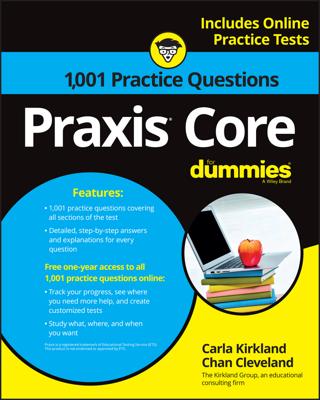Grammar is a tough subject for most Praxis Core test takers. Depending on when you went to school, you may be familiar with these grammar rules under a different name. Once upon a time, misplaced modifiers were called dangling participles. Then they were called dangling modifiers for a while. Then someone decided that the “dangling” business just sounded silly, so now grammarians call them misplaced modifiers.
A modifying clause is a dependent clause that opens a sentence and provides descriptive information about the subject of the subsequent independent clause. You can tell where one clause ends and the other begins because there’s always a comma between the dependent and independent clauses when the dependent clause comes first.
For example, take the sentence “After growing tired of the parade, Taryn went home.” The second clause is the main independent clause, and the first (a descriptive, dependent clause) provides more information about the subject, Taryn, and why she went home.
The rule for such situations is that the noun being described by the dependent clause has to come right after the comma, and a sentence that violates this rule is said to contain a misplaced modifier.
The sentence in the preceding paragraph is correct, but if someone were to write “After growing tired of the parade, we found out that Taryn went home,” that would be an example of a misplaced modifier.
A reader might be able to intuit from the context that Taryn is the one who left, but as written, the sentence means that we are the ones who got tired of the parade rather than Taryn, because we is the (pro)noun that immediately follows the modifying clause (and is the subject of the independent clause).
Which of the following sentences is correct?
(A) Needing to make an urgent call, Megan’s search for her phone charger was frantic.
(B) While playing football in the house, the lamp was broken.
(C) Confused by the directions, the gang drove around aimlessly.
(D) Never having met him before, I’m amazed you got along so well with Danny.
(E) Unlike some people, you can always depend on Gabriel.
The correct answer is Choice (C). “The gang” is who or what was “confused,” so this sentence places its subject in correct relation to its modifier. Choice (A) is wrong because, although the name “Megan” comes right after the comma, it is possessive, so the entire noun phrase is “Megan’s search” — and Megan’s search didn’t need to make a call; Megan herself did.
Choice (B) is wrong because, although what the writer means to say is clear, the sentence as written means that the lamp was playing football, which it obviously wasn’t doing. Choice (D) is wrong because it’s clear from context that the person being addressed is the one who has never met Danny before, not the speaker, so “I’m” should not immediately follow the comma
Choice (E) is wrong because, although it’s clear from the context that reliable Gabriel is the one who is “unlike some people,” the sentence as written means that the person being addressed is the one who is “unlike some people,” which is presumably not what the speaker means to say.

